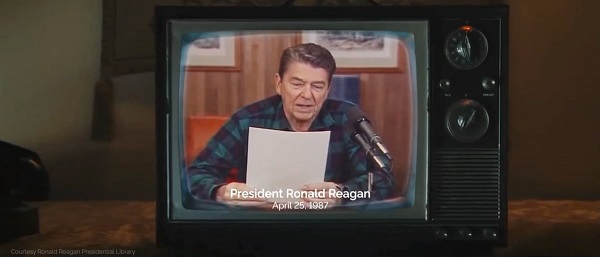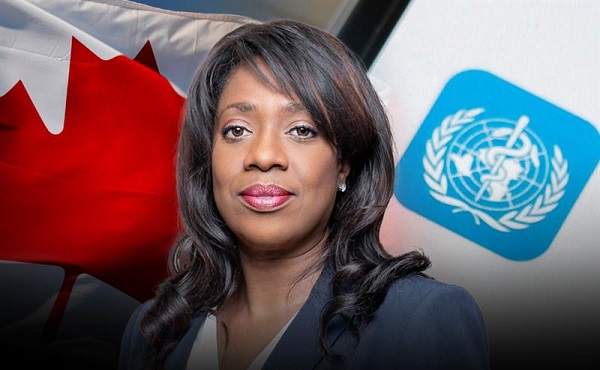Business
Will U.S. streaming companies play ball with the CRTC?: Peter Menzies

From the MacDonald Laurier Institute
By Peter Menzies
Domestic streamers have to live with the rules the CRTC comes up with, not so when it comes to global streamers
The fundamental weakness in Canada’s Online Streaming Act will be exposed for all to see on Nov. 20, when the Canadian Radio-television and Telecommunications Commission (CRTC) comes face-to-face with American streaming companies.
For the first time, the regulator will be dealing with companies that, if they don’t like the rules and the financial burden the CRTC imposes, are free to leave the country.
To be clear, neither Netflix, Disney+ nor any other company has yet suggested they are prepared to quit Canada. There have been no threats to do anything similar to what Meta did and Google might – stop carrying news – in response to the Online News Act. But there is nothing that compels foreign companies from continuing here if CRTC decisions make it no longer sensible for them to do so.
That shapes the conversation in a way that the commission, which commences a three-week-long hearing Nov. 20 involving 127 intervenors, isn’t accustomed to. Throughout its history, the primary players in CRTC procedures have always been captives of “the system” – domestic companies that depend for their existence on a commission license or rely upon the regulator’s decisions for their sustenance. They may not like the rules the CRTC comes up with, but they have to live with them.
Not so when it comes to global streamers that, as it turns out, are global.
Netflix’s base here is robust – 6.7 million subscribers – but that is just 10 per cent of its U.S. audience and only 2.8 per cent of its global subscriber base. According to its submission to the CRTC, it has already invested $3.5-billion in film and TV production since launching here in 2010 – roughly equivalent to the Canada Media Fund’s spend over the same period. And, it claims, people are 1.8 times more likely to view a Canadian production on Netflix than on TV. Let that sink in.
Disney+ makes similar arguments. It has 4.4 million Canadian subscribers out of a global total of about 147 million (down significantly this year). It points out that it has invested $1.5-billion in Canada, which is one of its top four production markets. As it gently states in its submission to the CRTC: “We encourage the commission to adopt a modernized contribution framework and a revised, modern definition of a ‘Canadian program’ that provide sufficient incentives for global producers and foreign online undertakings to continue to bring large-scale productions to, and make capital investments in, Canada.”
Large domestic companies that have been forced by regulation to contribute to the production and airing of certified Canadian content, meanwhile, argue for their “burden” in that regard to be reduced and shifted onto the backs of foreign companies.
In its submission, BCE Inc., which has a current profit margin of 21.2 per cent, describes the broadcasting system as in crisis, accuses streamers of having “contributed precious little to the Canadian system” and calls for its contributions to be reduced from 30 per cent to 20 per cent of the media division’s revenue – a figure it believes should be applied to all offshore streamers with more than $50-million in Canadian revenue.
BCE Inc. goes on to argue that if the commission takes its advice and forces the streamers to pay 20 per cent of their revenue directly into Canadian content funds, an additional $457-million – growing to $678-million by 2026 – will pour into the pockets of ACTRA, the Writers Guild and others involved in the creation of certified Canadian TV and film content.
And that, right there, is where Netflix, with a profit margin of 13 per cent clears its throat. Politely but firmly, it says the CRTC appears to have already made up its mind that streamers should be paying into funds and “submits that this is not an appropriate starting point.”
The decade prior to the introduction of the Online Streaming Act was by far the most prosperous in the history of the Canadian film and television industry, including in terms of Canadian content production.
Most of that growth took place beyond the reach of the CRTC, which was in charge of an increasingly irrelevant system upon which many legacy companies had grown dependent. But instead of fostering what was working, the government chose to sustain what wasn’t.
So now, as with the Online News Act, it’s playing at a table where it no longer holds all the cards.
Peter Menzies is a senior fellow with the Macdonald-Laurier Institute, a former publisher of the Calgary Herald and a previous vice-chair of the Canadian Radio-television and Telecommunications Commission (CRTC).
Business
‘TERMINATED’: Trump Ends Trade Talks With Canada Over Premier Ford’s Ronald Reagan Ad Against Tariffs


From the Daily Caller News Foundation
President Donald Trump announced late Thursday that trade negotiations with Canada “ARE HEREBY TERMINATED” after what he called “egregious behavior” tied to an Ontario TV ad that used former President Ronald Reagan’s voice to criticize tariffs.
The ad at the center of the feud was funded by Ontario Premier Doug Ford’s government as part of a multimillion-dollar campaign running on major U.S. networks. The spot features Reagan warning that tariffs may appear patriotic but ultimately “hurt every American worker and consumer.”
Dear Readers:
As a nonprofit, we are dependent on the generosity of our readers.
Please consider making a small donation of any amount here.
Thank you!
“They only did this to interfere with the decision of the U.S. Supreme Court, and other courts. TARIFFS ARE VERY IMPORTANT TO THE NATIONAL SECURITY, AND ECONOMY, OF THE U.S.A,” Trump wrote on his Truth Social platform late Thursday. “Based on their egregious behavior, ALL TRADE NEGOTIATIONS WITH CANADA ARE HEREBY TERMINATED.”
Ford first posted the ad online on Oct. 16, writing in a caption, “Using every tool we have, we’ll never stop making the case against American tariffs on Canada. The way to prosperity is by working together.”
The Ronald Reagan Presidential Foundation and Institute criticized the ad Thursday evening, saying it “misrepresents” Reagan’s 1987 radio address on free and fair trade. The foundation said Ontario did not request permission to use or alter the recording and that it is reviewing its legal options.
The president posted early Friday that Canada “cheated and got caught,” adding that Reagan actually “loved tariffs for our country.”
The ad splices audio from Reagan’s original remarks but includes his authentic statement: “When someone says, ‘let’s impose tariffs on foreign imports’, it looks like they’re doing the patriotic thing by protecting American products and jobs. And sometimes, for a short while it works, but only for a short time.”
Reagan also noted at the end of his remarks that, in “certain select cases,” he had taken steps to stop unfair trade practices against American products and added that the president’s “options” in trade matters should not be restricted, which the ad did not include.
Since returning to the White House, Trump has imposed tariffs on Canadian aluminum, steel, automobiles and lumber, arguing they are vital to protecting U.S. manufacturing and national security.
The Supreme Court is set to hear arguments in November over whether the administration overstepped its authority by invoking the International Emergency Economic Powers Act to impose reciprocal tariffs on dozens of nations, including Canada. Tariffs on commodities such as steel, aluminum and copper were implemented under Section 232 of the Trade Expansion Act and are not currently being challenged, as they align with longstanding precedent established by prior administrations.
Thursday’s move marks the second time this year Trump has canceled trade talks with Ottawa. In June, he briefly halted discussions after Canada imposed a digital services tax on American tech firms, though the Canadian government repealed the measure two days later.
Business
A Middle Finger to Carney’s Elbows Up

Elbows Up Stengthens U.S. Tariff Resolve at Canada’s Expense
The disastrously misguided “Elbows Up” campaign championed by the Carney government rooted in the fantasy that a smug, arrogant Liberal elite wields leverage over the largest economy in human history, has suffered yet another devastating blow. The latest fallout: U.S.-based truck manufacturer Paccar Inc., maker of iconic heavyweights such as Kenworth and Peterbilt, is slashing Canadian production and laying off hundreds of workers in anticipation of a 25-per-cent U.S. import tariff set to take effect next month.
Employees at Paccar’s Sainte-Thérèse, Quebec plant were informed Wednesday that the company will move production of trucks destined for the U.S. market back to its American facilities. According to Daniel Cloutier, Quebec director for Unifor, approximately 300 jobs will be eliminated, leaving roughly 500 workers at the plant.
Honking for Freedom Substack is a reader-supported publication.
To receive new posts and support my work, consider becoming a free or paid subscriber.
“They will continue building trucks for the Canadian market,” Cloutier said, noting that domestic demand represents a much smaller portion of output. At its peak, the plant produced 96 trucks per day; production will now drop to just 18 units daily. That is an 81% drop.
Paccar declined to confirm the restructuring or provide additional details. However, in a financial earnings call a day earlier, CEO Preston Feight described the U.S. tariff policy as advantageous for the company. “I think it helps Paccar significantly,” Feight said. “It gives us a competitive leg up from where we’ve been.”
U.S. Tariffs Driving Industry Shift
U.S. President Donald Trump has confirmed that all medium and heavy-duty trucks imported into the United States will face a 25-per-cent tariff beginning Nov. 1, along with an additional 10-per-cent duty on buses. The tariffs are being imposed under Section 232 of the Trade Expansion Act, which targets imports deemed to pose a national security risk.
These measures follow earlier tariffs that have already struck Canadian steel, aluminum, automobiles, copper, and lumber, forcing companies to shelve investments and reconsider their North American strategies.
Broader Auto Sector Retrenchment
Other automakers are also pulling back production in Canada. General Motors announced Tuesday it is ending production of the Chevrolet BrightDrop electric delivery van in Ingersoll, Ontario, costing over 1,100 workers their jobs. Stellantis recently confirmed plans to shift production of the Jeep Compass from Brampton, Ontario, to Belvidere, Illinois, as part of a strategy to increase U.S. output by 50 per cent by 2029.
Quebec Plant at Risk
The Sainte-Thérèse plant, which manufactures Class 5, 6 and 7 Kenworth and Peterbilt trucks, has already endured two rounds of layoffs over the past year as uncertainty around tariffs weakened demand. At peak production, the facility employed over 1,400 people.
Cloutier said the union is pressing both the Quebec and federal governments to prioritize the purchase of domestically made vehicles to sustain production levels. Without such measures, he warned, the plant could be forced to close due to high fixed costs and insufficient volume. “Let’s not pretend global trade hasn’t changed with this President,” Cloutier said. “We need to stop twiddling our thumbs.”
Bus Manufacturers Also Exposed
Quebec is also home to two major bus manufacturers, Prevost and Nova Bus, both owned by Volvo Group that could face similar challenges due to new tariffs on buses entering the U.S. Executives at both companies say they are still assessing the impact of the policy shift.
What can we learn from all this?
Perhaps our deep reliance on American innovation has consequences we have been unwilling to confront. The warning signs were evident well before Donald Trump’s election. He was explicit that tariffs would be used as a strategic tool to financially incentivize American companies to return to the United States. This was not hidden, it was a core pillar of his economic agenda.
I have said repeatedly on the Marc Patrone Show on Sauga 960 that my frustration is not with America’s strategy, but with Canada’s political class. Their smug arrogance lies in the belief that, as great as Canada can be, we could somehow dominate the greatest economy in the history of civilization rather than work with it. The Trump administration never wanted Canada to become the 51st state; they want our valuable resources and are willing to pay fair value for them, and they expect Canada to finally take our internal security threats seriously; something I have personally presented on in the United States. Yet instead of leveraging our strategic position, Canada’s leadership chose performative resistance over pragmatic partnership.
The most telling moment came when President Trump reportedly asked Justin Trudeau what would happen if the United States imposed a 25-per-cent tariff on all Canadian goods. Trudeau’s response, “It would destroy Canada” was an example of catastrophic stupidity. It handed Trump the gun he could use to execute Canada economically and perhaps cost Canada its sovereignty over the long term.
Reminiscent of the scene from The Hunt for Red October, when Captain Tupolev, in an act of smug Laurentian style arrogance, fires a torpedo at Ramius only for it to circle back and destroy his own submarine, a catastrophic miscalculation born of arrogance and a complete misunderstanding of the enemy’s capabilities. A catastrophic miscalculation that mirrors Elbows Up stupidity.
Order Now!
Honking For Freedom – The Trucker Convoy That Gave Us Hope HonkingForFreedom.com
Twitter | Locals | Rumble | Instagram
www.BenjaminjDichter.com
Audio
Freedom Coffee Podcast
Honking for Freedom Substack is a reader-supported publication.
To receive new posts and support my work, consider becoming a free or paid subscriber.
-

 Agriculture1 day ago
Agriculture1 day agoFrom Underdog to Top Broodmare
-

 City of Red Deer2 days ago
City of Red Deer2 days agoCindy Jefferies is Mayor. Tristin Brisbois, Cassandra Curtis, Jaelene Tweedle, and Adam Goodwin new Councillors – 2025 Red Deer General Election Results
-

 Bruce Dowbiggin2 days ago
Bruce Dowbiggin2 days agoIs The Latest Tiger Woods’ Injury Also A Death Knell For PGA Champions Golf?
-

 Alberta2 days ago
Alberta2 days agoAlberta’s licence plate vote is down to four
-

 Health1 day ago
Health1 day agoSovereignty at Stake: Why Parliament Must Review Treaties Before They’re Signed
-

 Business1 day ago
Business1 day ago$15B and No Guarantees? Stellantis Deal explained by former Conservative Shadow Minister of Innovation, Science and Technology
-

 Censorship Industrial Complex2 days ago
Censorship Industrial Complex2 days agoCanada’s justice minister confirms ‘hate crimes’ bill applies to online content
-

 RCMP1 day ago
RCMP1 day agoPolice arrest thieves using garage-door openers to access homes in Vanier, West Park, Anders Park, and Evergreen










